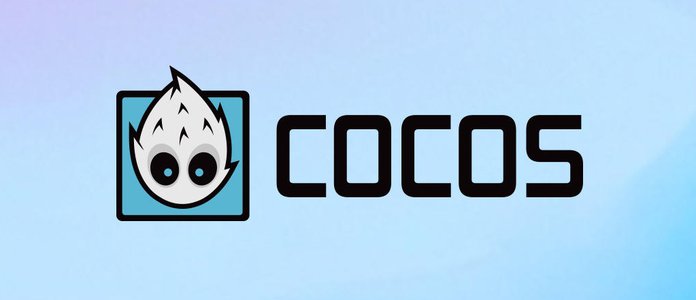In today's digital era, safeguarding your game's code and assets is more crucial than ever. The term anti decompile refers to the techniques and tools used to prevent unauthorized access to a game's source code and resources. This article delves into the various methods and technologies employed to achieve robust anti-decompilation, ensuring your game's integrity and security.
Understanding the Threat Landscape
Game developers face numerous threats, including reverse engineering, code tampering, and asset theft. Tools like dnSpy and IL2CppDumper make it easier for malicious actors to decompile and analyze game code, leading to potential exploits and unauthorized modifications.

Anti Decompile Techniques for Unity
Unity, being one of the most popular game engines, is a prime target for decompilation attempts. Implementing anti-decompilation strategies is essential to protect Unity-based games.
IL2CPP Conversion
Converting your Unity project to IL2CPP (Intermediate Language To C++) compiles the code into native binaries, making it significantly harder to decompile compared to the default Mono scripting backend.
Obfuscation
Obfuscation involves renaming classes, methods, and variables to meaningless names, making the decompiled code difficult to understand. Tools like Obfuscator Pro offer advanced obfuscation features tailored for Unity projects.
Encrypting Assemblies
Encrypting DLL files, such as Assembly-CSharp.dll, adds an extra layer of security. By encrypting these files and implementing runtime decryption, you can prevent unauthorized access while ensuring the game runs smoothly.
Protecting Lua Scripts
For games utilizing Lua scripting, especially with engines like Cocos2d-x, protecting Lua scripts is vital to prevent reverse engineering.
Bytecode Compilation
Compiling Lua scripts into bytecode makes them less readable and harder to reverse engineer. However, tools exist that can decompile Lua bytecode, so additional measures are necessary.
Custom Encryption
Implementing custom encryption for Lua scripts adds a significant hurdle for potential attackers. Encrypting the scripts and decrypting them at runtime ensures that the source code remains protected.
Advanced Anti Decompile Strategies
Beyond basic encryption and obfuscation, advanced strategies can further enhance your game's security.
Anti-Debugging Techniques
Implementing anti-debugging measures can prevent attackers from analyzing your game using debugging tools. Detecting and responding to debugging attempts can thwart reverse engineering efforts.
Integrity Checks
Regularly verifying the integrity of your game's files ensures that any unauthorized modifications are detected promptly. Implementing checksums and digital signatures can help maintain the game's integrity.
Implementing Anti Decompile in C and C++
For games developed in C or C++, specific techniques can be employed to prevent decompilation.
Code Obfuscation
Obfuscating C/C++ code involves techniques like control flow obfuscation, instruction substitution, and opaque predicates. These methods make the code harder to analyze and reverse engineer.
Binary Packing
Using binary packers compresses and encrypts the executable, making it more challenging for attackers to analyze the binary. Tools like UPX can be used, though custom packers offer better security.

Key Technical Specifications
Implementing anti-decompilation measures involves various technical aspects:
▪ Encryption Algorithms: AES, RSA, and custom algorithms for encrypting code and assets.
▪ Obfuscation Tools: Obfuscator Pro, Dotfuscator, and custom obfuscation scripts.
▪ Runtime Decryption: Secure methods to decrypt code and assets during game execution.
▪ Integrity Verification: Checksums, digital signatures, and hash functions to verify file integrity.
▪ Anti-Debugging Measures: Detecting and preventing debugging attempts using various techniques.
Frequently Asked Questions
What is anti decompile?
Anti decompile refers to techniques used to prevent unauthorized access to a game's source code and assets by making decompilation and reverse engineering difficult.
Why is anti decompile important for game developers?
Implementing anti-decompilation measures protects intellectual property, prevents cheating, and ensures a fair gaming experience for all players.
Can obfuscation alone prevent decompilation?
While obfuscation makes code harder to understand, it doesn't prevent decompilation. Combining obfuscation with encryption and other security measures offers better protection.
How does IL2CPP enhance security in Unity games?
IL2CPP compiles code into native binaries, making it more challenging to decompile compared to the default Mono scripting backend, thus enhancing security.
Are there tools to protect Lua scripts from decompilation?
Yes, tools and techniques like bytecode compilation and custom encryption can protect Lua scripts from decompilation and reverse engineering.
What are some common anti-debugging techniques?
Common anti-debugging techniques include detecting debugger presence, using checksums, and implementing traps that disrupt debugging tools.
Conclusion
Protecting your game's code and assets is essential in today's competitive and security-conscious environment. By implementing comprehensive anti-decompilation strategies, including obfuscation, encryption, and anti-debugging measures, you can safeguard your game's integrity and provide a secure experience for your players.
For developers looking for a comprehensive and seamless game protection solution, JikGuard Game Protection offers cutting-edge encryption and anti-cheat technology to ensure your game remains secure without compromising performance.Why Choose JikGuard Game Protection?
√ On-Demand Security Assessment:
Not sure if your game needs encryption? JikGuard provides free security testing and reports, helping you identify potential risks through penetration testing and in-depth analysis.√ Minimal Performance Impact:
JikGuard’s encryption system only decrypts resources when needed, ensuring that files remain encrypted in the cache and have virtually no effect on loading speed or game smoothness.√ Seamless Multi-Channel Packaging:
Supports mother package encryption, meaning all sub-packages remain protected without requiring additional processing for different distribution channels.√ No SDK Required:
Unlike traditional solutions, JikGuard does not require SDK integration—simply run a command, and the encryption process is handled automatically.√ Ultra-Low Performance Overhead:
▪ CPU usage increase: <0.2%▪ Memory consumption: <1MB
▪ Startup time increase: <25ms
▪ Package size increase: <1.3MB
Ensuring a smooth and seamless gaming experience.
With JikGuard Game Protection, you can focus on game development while ensuring top-tier security against cheats, resource leaks, and competitive analysis. Protect your game today and keep your vision intact!


































